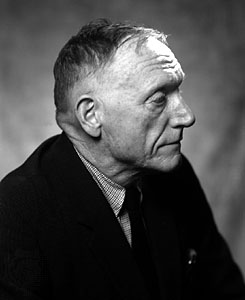
Robert Penn Warren was an American poet, novelist, and literary critic and was one of the founders of New Criticism. He was also a charter member of the Fellowship of Southern Writers. He founded the literary journal The Southern Review with Cleanth Brooks in 1935. He received the 1947 Pulitzer Prize for the Novel for All the King's Men (1946) and the Pulitzer Prize for Poetry in 1958 and 1979. He is the only person to have won Pulitzer Prizes for both fiction and poetry.

Ezra Weston Loomis Pound was an expatriate American poet and critic, a major figure in the early modernist poetry movement, and a fascist sympathizer. His contribution to poetry began with his development of Imagism, a movement derived from classical Chinese and Japanese poetry, stressing clarity, precision, concision, and economy of language. His works include Ripostes (1912), Hugh Selwyn Mauberley (1920) and the unfinished 120-section epic, The Cantos (1917–1969).

The Pulitzer Prize for Poetry is one of the seven American Pulitzer Prizes awarded annually for Letters, Drama, and Music. It first presented in 1922 for a distinguished volume of original verse by an American author, published during the preceding calendar year.

William Carlos Williams was an American poet and physician closely associated with modernism and imagism.

Conrad Potter Aiken was an American writer, whose work includes poetry, short stories, novels, a play, and an autobiography.

John Orley Allen Tate, known professionally as Allen Tate, was an American poet, essayist, social commentator, and Poet Laureate from 1943 to 1944.
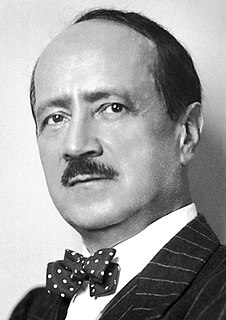
Saint-John Perse was a French poet-diplomat, awarded the Nobel Prize in Literature in 1960 "for the soaring flight and evocative imagery of his poetry." He was a major French diplomat from 1914 to 1940, after which he lived primarily in the United States until 1967.
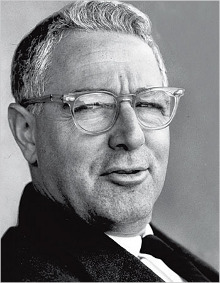
Karl Jay Shapiro was an American poet. He was appointed the fifth Poet Laureate Consultant in Poetry to the Library of Congress in 1946.

Archibald MacLeish was an American poet and writer who was associated with the modernist school of poetry. MacLeish studied English at Yale University and law at Harvard University. He enlisted in and saw action during the First World War and lived in Paris in the 1920s. On returning to the United States, he contributed to Henry Luce's magazine Fortune from 1929 to 1938. For five years MacLeish was Librarian of Congress, a post he accepted at the urging of President Franklin D. Roosevelt. From 1949 to 1962, he was Boylston Professor of Rhetoric and Oratory at Harvard University. He was awarded three Pulitzer Prizes for his work.
The Bollingen Prize for Poetry is a literary honor bestowed on an American poet in recognition of the best book of new verse within the last two years, or for lifetime achievement. It is awarded every two years by the Beinecke Rare Book and Manuscript Library of Yale University.

Richard Ghormley Eberhart was an American poet who published more than a dozen books of poetry and approximately twenty works in total. "Richard Eberhart emerged out of the 1930s as a modern stylist with romantic sensibilities." He won the Pulitzer Prize for Poetry for Selected Poems, 1930–1965 and the 1977 National Book Award for Poetry for Collected Poems, 1930–1976. He was the grandfather of former Red Sox general manager Ben Cherington.

Anthony Evan Hecht was an American poet. His work combined a deep interest in form with a passionate desire to confront the horrors of 20th century history, with the Second World War, in which he fought, and the Holocaust being recurrent themes in his work.
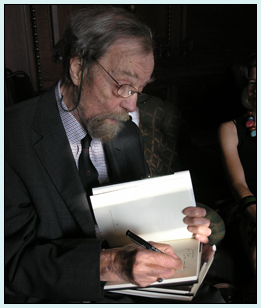
Donald Andrew Hall Jr. was an American poet, writer, editor and literary critic. He was the author of over 50 books across several genres from children's literature, biography, memoir, essays, and including 22 volumes of verse. Hall was a graduate of Phillips Exeter Academy, Harvard, and Oxford. Early in his career, he became the first poetry editor of The Paris Review (1953–1961), the quarterly literary journal, and was noted for interviewing poets and other authors on their craft.
The Rebekah Johnson Bobbitt National Prize for Poetry is awarded biennially by the Library of Congress on behalf of the nation in recognition for the most distinguished book of poetry written by an American and published during the preceding two years. The award is overseen by the Library of Congress Center for the Book.
Philip Olin Keeney (1891–1962), and his wife, Mary Jane Keeney, were librarians who became part of the Silvermaster spy ring in the 1940s.
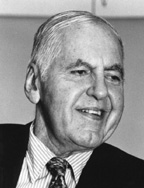
William Morris Meredith Jr. was an American poet and educator. He was Poet Laureate Consultant in Poetry to the Library of Congress from 1978 to 1980.
The Shelley Memorial Award of the Poetry Society of America, was established by the will of Mary P. Sears, and named after the poet Percy Bysshe Shelley. The prize is given to a living American poet selected with reference to genius and need, and is currently worth (2014) between $6,000 and $9,000. The selection is made by a jury of three poets: one each appointed by the presidents of Radcliffe and Berkeley, and the third by the Board of Governors of the Society.
Nationality words link to articles with information on the nation's poetry or literature.
The Bollingen Foundation was an educational foundation set up along the lines of a university press in 1945. It was named after Bollingen Tower, Carl Jung's country home in Bollingen, Switzerland. Funding was provided by Paul Mellon and his wife Mary Conover Mellon. The Foundation became inactive in 1968, and its publications were later re-issued by Princeton University Press.